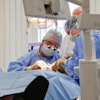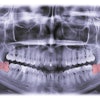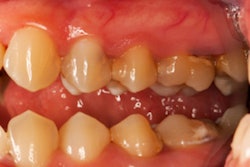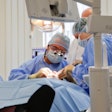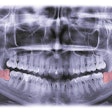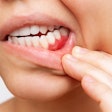
Using a combination of amoxicillin and metronidazole in conjunction with full-mouth scaling and root planing during the treatment of generalized, aggressive periodontitis is safe and effective, according to a meta-analysis in the Journal of Periodontology (JOP, November 3, 2011).
Among the possible antibiotic regimens, the combination of amoxicillin and metronidazole has gained popularity because of its effectiveness at suppressing Aggregatibacter actinomycetemcomitans, according to the study authors, from the University of L'Aquila School of Dentistry in Italy.
However, recent studies that compared full-mouth scaling and root planing alone and in combination with amoxicillin and metronidazole reported contrasting clinical and microbiological outcomes in terms of effectiveness.
Also, issues related to the therapy have yet to be clarified, the JOP study authors noted. For example, there is no clear consensus on the mechanism of action during the treatment of generalized aggressive periodontitis, and the risk of side effects needs to be analyzed.
To assess the effectiveness and clinical safety of amoxicillin and metronidazole combined therapy in treating generalized, aggressive periodontitis, the researchers conducted an electronic search of eight databases from their earliest records through September 11, 2011, and a hand search of 10 international dental journals over the last 15 years.
6 randomized trials
The study selection process was performed by two blinded reviewers in two phases. As a result, six randomized clinical trials with a total of 181 patients were included out of an initial total of 368 potentially relevant titles and abstracts. The six included randomized, controlled trials comparing full-mouth scaling and root planing plus amoxicillin and metronidazole versus full-mouth scaling and root planing alone in the treatment of generalized aggressive periodontitis, which was diagnosed according to the criteria of American Academy of Periodontology in five out of the six included studies.
The authors analyzed changes in full-mouth clinical attachment level gain (mm) and full-mouth probing depth reduction (mm). They also studied changes in visible plaque index, which was expressed as the percentage of site with plaque accumulation, gingival bleeding index expressed as the percentage of site with gingival bleeding by running the probe 2 mm into the gingival crevice, and bleeding on probing expressed as the percentage of site with bleeding on probing.
Finally, they analyzed microbiological changes, adverse events, compliance of patients to amoxicillin and metronidazole administration, and cost/benefit ratio.
The researchers found significant clinical attachment level gain and probing depth reduction in favor of full-mouth scaling and root planing plus amoxicillin and metronidazole. They also found differences in favor of full-mouth scaling and root planing plus amoxicillin and metronidazole for bleeding on probing changes and gingival bleeding index changes. However, the differences in visible plaque index changes were not significant.
They found no significant risk difference in the occurrence of adverse events between full-mouth scaling and root planing plus amoxicillin and metronidazole and full-mouth scaling and root planing groups.
"The findings of this meta-analysis support the effectiveness of the systemic use of combined amoxicillin and metronidazole treatment as an adjunctive therapy to full-mouth scaling and root planing in patients with generalized, aggressive periodontitis," the study authors concluded. "Furthermore, the results seem to indicate that the use of combined amoxicillin and metronidazole therapy is not associated with the occurrence of serious adverse events."
Considering the small number of included studies, however, future well-designed, multicenter, large studies with standardized study designs are needed to confirm these results, they added.

